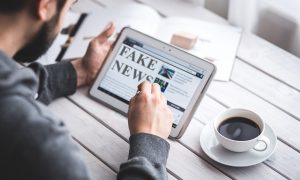Locating experts for business features and business news stories can get tricky if you’re juggling multiple assignments and deadlines. In my experience writing for the Guardian, the Economist and the Financial Times of London, most editors expect at least three interviews per article–even six to eight experts for in-depth features. Here are six strategies I’ve found yield credible, reliable experts for my business news stories and features in a crunch.
Just be there.
Computer-assisted reporting works wonders, but showing up in person yields sources as well, often saving you time. Last fall, I reported on a financial inclusion forum at the United Nations headquarters. Not only did I cover an endearing topic, helping women in developing countries gain better access to formal banking, I met three experts, which helped me generate new business articles. My favorite was a two-part profile on Daniela Ligiero, the first vice president of girls and women strategy at the United Nations Foundation, and a panelist at the forum. (In our featured pic, I’m on site at the Bayer North American Bee Care Center, reporting on the news for the Guardian.) Sources like seeing writers do their job, and in-person interviews (versus Skype or phone) help sources open up.
Consult Amazon’s book section.
Amazon’s book section yields excellent experts. For a networking story with The Guardian, I typed in the term “networking” and found Nancy Liles, whose book, “The Networking Diary,” sells on Amazon. For a separate story on the growing use of speech recognition technologies among small businesses (for Tech4BusinessNow) I found my resident expert, Roberto Pieraccini’s, book.
Ask your experts for referrals (and maintain the connection for leads to new stories.)
I never end an interview without asking: “Is there anyone else I should speak to?” Let your expert guide you to other essential voices to ensure you provide readers with balanced and in-depth reporting. (Ask them for relevant studies and research too.) Case in point: Pieraccini worked for Jibo, a company producing the world’s first social robot for the home. When my Guardian editor asked for leads on tech success stories, I immediately thought of Jibo’s CEO.
Post requests for leads on Profnet, HARO and LinkedIn community groups.
I’ve sourced many leads for tech and business trend stories through Profnet. The free service requires signing up and posting a request, which Profnet sends to their global expert database. Experts respond to you via email, (sometimes within days, sometimes hours), and you establish interviews with the best fit. HARO operates similarly, sending an email soliciting sources for journalists. LinkedIn groups also work well for obscure topics, such as growing use of speech recognition technology in small enterprises. Simply join and state your request, clearly identifying yourself as a reporter.
Ask your editor (and community) for leads.
With every new assignment, I always tell my inner circle what I’m writing about, in case they know someone fitting the trend. Some of my news-reporting students at UNC Chapel Hill get wonderful leads for business profiles from their parents. On that same note, keep your sleuth hat on when you’re running errands, commuting and socializing—you never know where (and when) you’ll find a good and intriguing source. My end quote for this story on CVS Caremark no longer selling cigarettes in its retail stores came from my neighborhood store.
Read/listen to other reporting on your topic.
One of my favorite interviews last year, Lauren Thom, owner of Fleurty Girl, a New Orleans themed retailer selling T-shirts and other goods, became my narrative lead for a business trend feature on the power of networking among entrepreneurs, published with the Guardian. Thom’s story was awesome – the single mom of three launched her business with a $2,000 tax refund, then built the business up into a $3 million business. How did I find her? I read a tiny, 100-word vignette on Thom in Entrepreneur magazine, reached out to her via her website; after a few emails, she gave me an interview.
Happy sleuthing! Next week’s blog will cover how to provide a good range of experts, and ways to avoid bias in your business reporting.











